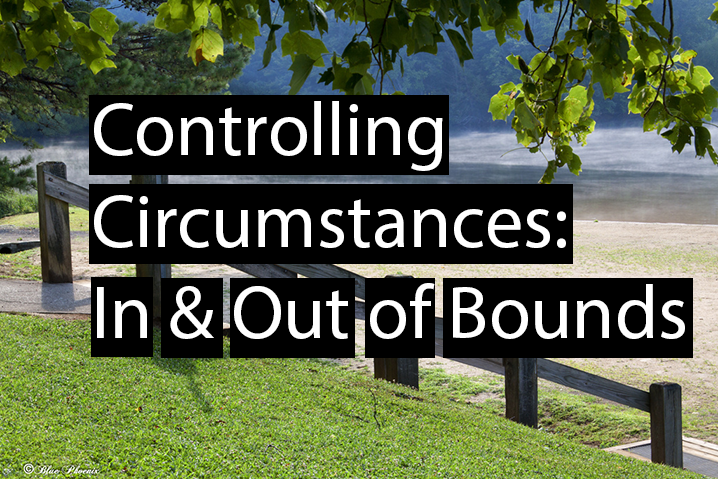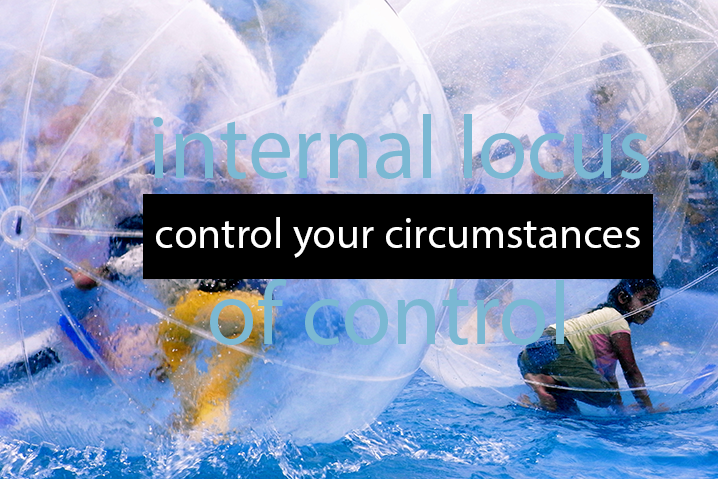Controlling Circumstances: In & Out of Bounds
“The circumstances of our lives may actually matter less to our happiness than the sense of control we feel over our lives.” – Rory Sutherland, Vice-Chairman of Ogilvy Group UK
“We can’t change every little thing that happens to us in life, but we can change the way that we experience it.” – Andy Puddicome, founder of Headspace (Source)
Create circumstances that dictate your internal feelings. Enact and impart change within your environment, seek to fight against being a product of it. Resist being passive and too comfortable to hesitate. I have to fight such potentially consuming feelings nearly everyday, and try to remind myself to embrace the bronze medalist mentality.
I have encountered numerous stressors through firsthand experience during bouts of intense working weeks in Asia. Pressure, deadlines, multi-tasking, flooded inboxes. Late nights and knots in my stomach. Sweat and anxiety permeate, my heart rate elevates. Stress physically felt through the pores of my skin. Panic at times threatens to set in.
There are differing paths that one can choose to obtain the triggers in our brain for neurochemical reactions to alleviate tension and to find solace in. The choice is ours in how we decide to take on the demands and challenges of life — whether to manage healthily or to take refuge.
“Fear is going to be a player in your life, but you get to decide how much. You can spend your whole life imagining ghosts, worrying about your pathway to the future, but all there will ever be is what’s happening here, and the decisions we make in this moment, which are based in either love or fear.” – Jim Carrey, Canadian American Actor, Comedian, and Producer
The Vehicle of Exercise
A relevant proxy for controlling circumstances and choice can be drawn from exercise as each of us can directly determine how much effort we dedicate to physical activity. We control how much exercise we do or don’t do, and the variance is striking amongst people and countries. These differences can account for the wide range of moods we feel.
Exercise is vital in combating negativity, stress, and depression. A 4-month study of 156 adults in 1999 separated into experimental groups of exercising, taking antidepressants, or a mixture of both saw patients’ depression levels drop for all participants. This guided researchers to the conclusion that although the antidepressants’ effects were more immediate, “an exercise training program may be considered an alternative to antidepressants for treatment of depression in older persons.” This was the first signal of the advantages associated with active natural (healthy management) vs. passive artificial (taking refuge) coping mechanisms in dealing with a depressed state of mind.
A further investigation on 133 of the 156 sample of adults was conducted at 4 (baseline) and 10 months after the original study. At the 4 month mark, all participants exhibited similar improvements against depression. Yet the next follow-up examination at 10 months revealed a surprising finding with far-reaching implications: exercise was in fact more sustainable over the longer-term in combatting depression than antidepressants. The researchers would write, “After 10 months (…) remitted subjects in the exercise group had significantly lower relapse rates than subjects in the medication group.”
Another unexpected discovery for researchers was that combining medication and physical activity didn’t bring down depression any more than the single treatment application groups. “Interestingly, combining exercise with medication conferred no additional advantage over either treatment alone.”
To summarize, then: for a sustained improvement in depression (lower relapse rates), adding antidepressants to exercise and/or consuming antidepressants alone were less effective than just simply doing exercise. The antidepressant drugs kicked in quickly, but would wear off equally as fast. Drugs provide the high, but are followed by a comedown and a higher incidence of relapse.
On the other hand, those partaking in exercise continued to enjoy progressively better benefits as documented in the experiment: “Each 50-minute increment in exercise per week was associated with a 50% decrease in the odds of being classified as depressed.”
Not only that, but more exercise seemed to create a virtuous cycle. In effect, each subsequent session of exercise was a “small win” for the participants. As Cornell University Professor Karl Weick defined the term in his 1984 paper “Small Wins: Redefining the Scale of Social Problems,” “a small win is a concrete, complete, implemented outcome of moderate importance.” Each small win on its own may not be significant, but “once a small win has been accomplished, forces are set in motion that favor another small win.” The depressed patients were unlocking a series of small wins by successively building off and gaining from each individual one.
The scientists in the experiment hypothesized that a reason for the exercise group’s significant favorable changes was that “one of the positive psychological benefits of systematic exercise is the development of a sense of personal mastery and positive self-regard.” Indeed, Professor Weick of Cornell described small wins as “miniature experiments that test implicit theories about resistance and opportunity and uncover both resources and barriers that were invisible before the situation was stirred up.” The group exercising started uncovering new realities that were formerly unknown to them, which provided all the more momentum for them to continue in their exercise treatment. They were developing a sense of command over the boundaries for controlling their circumstances. A 2002 study of 266 participants in New Mexico University corroborates what the formerly depressed patients in the exercise group were undergoing: 92% of people habitually exercised because it made them feel good, and 67% did so for a sense of accomplishment.
The depression study concludes with “the present findings suggest that a moderate exercise program is an effective, robust treatment for patients with major depression (…) and that clinical benefits are particularly likely to endure among patients who adopt exercise as a regular, ongoing life activity.”
Essentially, the scientists deduced that “exercise’s effects lasted longer than those of antidepressants.”
Patients engaged in exercise not only benefited from enhancing their psychological health, but also their physical health while gaining a sense of mastery in capitalizing on small wins from performing physical activity. The activity was a catalyst to seizing control of their own circumstances.
Exercise is regarded to be a “keystone habit,” a fundamental routine with crossover effects into the rest of our lives, permeating into the areas of being more productive while working to better controlling one’s urges of diet and cigarettes. “Exercise spills over,” according to James Prochaska, University of Rhode Island researcher (as written in “The Power of Habit” by Charles Duhigg): “There’s something about it that makes other good habits easier.”
Over-the-Counter Escape
As we have seen with depression, substances/medication (read: alcohol) can be a substitute toward diluting the effects of anxiety and tension, although not always in a sustainable fashion. Whereas exercise strengthens, tones, and ameliorates well-being, substance abuse tends to deteriorate one’s health and damage the body over time.
In fact, alcohol has widely been documented as the single most destructive agent on men’s success and development, as demonstrated through a Harvard University longitudinal study of 268 men over the course of 75+ years since the late 1930s (termed the “Grant Study”):
“Alcoholism is a disorder of great destructive power.”
As The Atlantic would put it: “Alcoholism was the main cause of divorce between the Grant Study men and their wives; it was strongly correlated with neurosis and depression (which tended to follow alcohol abuse, rather than precede it); and—together with associated cigarette smoking—it was the single greatest contributor to their early morbidity and death.”
In this same light, half of those who suffer from insomnia due to stress or anxiety exacerbate insomnia by substance abuse or by simply giving up — effectively relinquishing control of their own circumstances — as coping mechanisms. Alcohol may bring upon the onset of sleep earlier, but hinders restful REM sleep. And by giving up, you’re effectively resolving yourself to accepting defeat and to rejection, which serves to increase the risk of insomnia the most amongst those sampled (9% for those not controlling their circumstances vs. 4% for the alcohol group).
Moving to Live
Just as substance abuse can ruin one’s health, lack of exercise can be equally as degenerative. A sedentary lifestyle can be especially unhealthy and does not bode well for longevity. In stark terms, in a renowned Framingham Heart Study carried out in 1948 of 5,200 adults convincingly showed that a lack of exercise cuts one’s life short by years.
“Over all, people in the lowest exercise category had about twice the risk of dying from heart disease as those in the middle group and six times the risk of those in the group who exercised the most often and vigorously,” as summarized by the New York Times.
Our bodies are not meant to be sedentary, and tragically many office jobs that require high occupational sitting can risk contributing to obesity and higher rates of mortality.
However, exercise is an effective deterrent against indicators of the Frammingham Risk Score calculator, which estimates the probability of a heart attack in the next 10 years, based on blood pressure, age, obesity, cholesterol, and smoking habits. “People who walked often and briskly were far more likely to be alive 15 years later than those who rarely got up and moved” according to the New York Times piece on the Frammingham Heart Study. A 2011 study in Taiwan of 416,175 medical records even tentatively suggests that as little as 15 minutes of exercise a day can reduce the risk of mortality by 14% compared to couch potatoes. In fact, combining sports outside with “green” nature has material uplifting effects on our mood and self-esteem, with the first five minutes being the most beneficial. Getting out of the office at lunch can and does make a difference in your mood and can keep you healthy for longer.
The consensus is unanimous that we should move around to stay fit and healthy. Exercise inclined towards the severe end shows indications (provisionally) to even reduce the risk of catching the flu, seemingly strengthening the immune system. As evoked in recent studies, although admittedly small in number, coronary-artery issues may be correlated with marathon runners. It seems that the evidence is inconclusive and is somewhat of a “chicken or the egg” paradox: “while consistent exercise decreases the likelihood that you will have a heart attack, if you are destined to have one it is more likely to happen while you are exercising” writes the New Yorker in a post on extreme exercise. Pre-existing conditions conflate the dangers or safety of extreme forms of exercise, making it difficult for scientists to tease out the pros/cons of severe exercising (due to smaller sampling numbers, speculative observational evidence, etc.). As James O’Keefe, a cardiologist in Mid America Heart Institute, expresses, “while it doesn’t appear that overdoing exercise shortens longevity, it does appear to blunt the otherwise unrivaled improvements in life expectancy conferred by less extreme amounts of exercise.” In other words, we know that moderate to full exercise is very good for us, but the verdict is still out on more drastic forms of exercise.
As with the degeneration brought on by substance abuse, profuse amounts of exercise does not entirely obviate nor replace what we do to ourselves in the way of eating and lifestyle. This interplay underscores the paramount importance of moderation in all that we do in my view. Alas, there is no magic elixir to curing everything (despite the infinite number of infomercials claiming otherwise); diet can and does play a large role on the state of the human body. Volumes of literature have been written on diet, which I will not delve into here. On a personal note, I can relate to this very amusing and informative comic on why running can be so enjoyable and addictive: http://theoatmeal.com/comics/running. I’ve actually recently discovered the benefits of running and completed my first 10km race earlier this year, which was always a far-off goal of mine. Will try to return to form to do another one in the years ahead if possible.
Taking Ownership
Beyond the physical realm of flesh and bone, a fatalist disposition — blindly accepting that we cannot control our circumstances — is a very poor mechanism for dealing with issues in life as we grow old. On the contrary, we must seek to develop a strong internal locus of control — outcomes can and are largely determined by one’s efforts, both standalone and, often more importantly, with others.
“Pray as if God will take care of all; act as if all is up to you.” – Ignatius of Antioch
While varying shades of grey characterize the world in which we live, excavating a “moat” around one’s scope of circumstances is vital to protecting against the invading challenges in life and to healthily manage through the peaks and troughs. In returning to the Harvard Grant Study, resilience in aging was uncovered amid “seven major factors that predict healthy aging, both physically and psychologically. (…) Employing mature adaptations was one. The others were education, stable marriage, not smoking, not abusing alcohol, some exercise, and healthy weight.”
As Dan Pink writes in his book “To Sell is Human,”: The more you explain bad events as temporary, specific, and external, the more likely you are to persist even in the face of adversity.” Perception is everything, and shapes the way in which we interact with the world. “The way we habitually think of our surroundings and ourselves create the worlds that each of us inhabit” writes Charles Duhigg. Change your frame of reference and you can change the way you experience the world.
“You alone decide your future through the choices you make. This philosophy is the key to unlocking your potential. By doing so you not only assume responsibility, you also assume control over everything in your life.” – Source
From my own experience and a growing body of psychological research, each person can and should ideally have their own interpretation on the happenings of life, why they happen, and how to take comfort in them. The point is to make light of difficulty and to persevere in the face of adversity. As Jim Carrey delivered in his graduation speech to the Maharishi University of Management on how to deal with the events of life:
“And when I say, “life doesn’t happen to you, it happens for you.” I really don’t know if that’s true. I’m just making a conscious choice to perceive challenges as something beneficial so that I can deal with them in the most productive way. You’ll come up with your own style, that’s part of the fun!”
Focus on things in your control and slowly other things will fall into place. As I’m now seeing, you’ll propel an inertia of piecemeal improvements that naturally build on one another. As the depressed patients discovered, these “small wins” will coalesce and take shape into something new and better.
Our attention should be dedicated to the internal factors we can change and minimized for the external events that we cannot affect — the choice is ours to control our circumstances. There is nothing quite like the innate satisfaction from improving and reaching your goals. Nobody can take this achievement away from you. It’s a set of circumstances falling underneath your scope of control.






